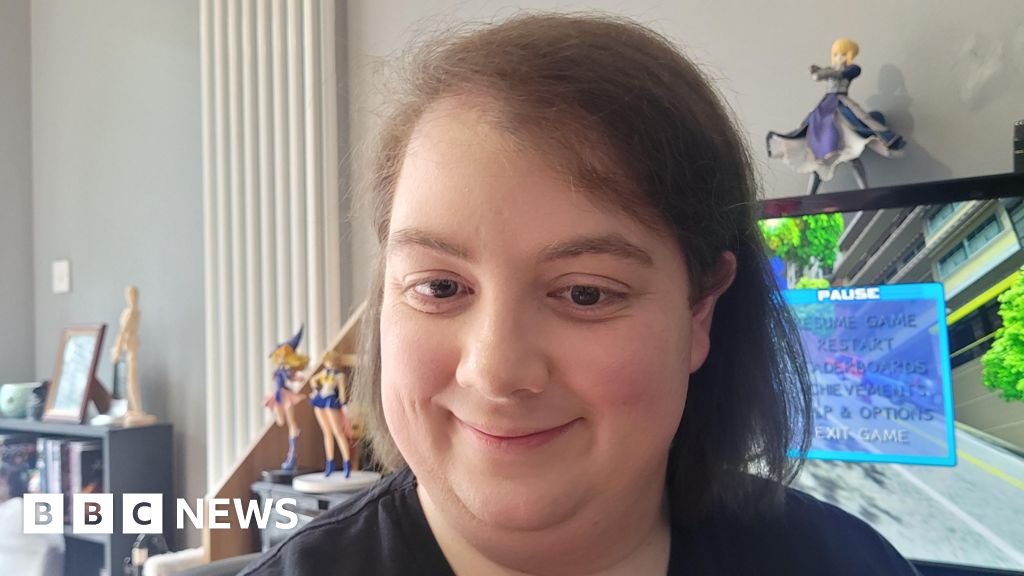- Author, Ian Hamilton
- Role, BBC Scotland News
-
Kellie Dingwall is one of a growing number of visually impaired people who are getting into online gaming.
“One of my best friends and I got closer through playing games online, and it became a weekly thing,” she told BBC Scotland.
“Now, it’s a little community of blind gamers.”
Gaming studios are increasingly thinking about things like sight-loss or motor skills issues as they open up games to a whole new audience.
Disabled gamers have pointed to a culture shift in games development with features now built in “from the ground up”.
Kellie says the changes can be as simple as increasing the writing size on-screen for those with partial sight loss or providing better colour contrast options.
Other games have more tailor-made elements.
“The other day, I found a game that would let me use text-to-speech, and it would read out letters or options in conversations, for example,” Kellie said.
Despite the move towards accessibility, Kellie says she can be hesitant when trying new games.
“I tend to look at reviews before I buy,” she said.
“I generally prefer not to pre-order games because I don’t know what the accessibility features would be like.”
James Kyle, who works for RNIB Scotland, has been running a gaming group for visually impaired people like him.
“There’s no reason why people with no vision should be left out,” he said.
One of the game styles he highlights is an audio game, where players wear headphones and navigate through a 3D audio world, guided by sound effects and audio descriptions.
James said his blind users’ gaming group involves people from Scotland, Northern Ireland, England and other parts of the world.
Video games development is estimated to be worth £350m a year to the Scottish economy, and developers are more conscious about their markets.
Dundee has a long association with games development and Abertay University, within the city, says ensuring accessibility is central to what it teaches.
Dr Lynsay Shepherd from the university, said: “Disabled gamers have been left out for too long.
“Steps need to be taken to ensure everyone can experience the fun of playing games.”
She said accessibility was “drilled in” to students from day one.
“We make sure that is discussed all the way through, and the challenges that are there as well,” she said.
Growth in accessibility has been “massive” in recent years according to Dr Shepherd, and she believes eye-tracking for people with physical limitations could be the next field of interest.
“Webcams on laptops have become very high quality,” she said.
“These can be used to capture the eyes to control the machine, and that can be baked into games.
“It’s going to become much more accessible to a wider range of people very soon.”
Different disabilities
Opening up the gaming market to those with complex physical needs is also being tackled in Dundee.
Konglomerate Games designed a game to help young people with Cystic Fibrosis.
It uses the player’s breath to control mini-games, like firing darts at balloons.
The idea is they have fun while performing necessary breathing exercises.
“We’re trying to bring games to people with different disabilities or conditions, so they can improve their lives,” chief executive Jamie Bankhead said.
“The market is huge. If kids can play games and get something beneficial out of it, that’s great.”
Mr Bankhead said developers needed to be conscious of people’s motor skills, and whether physically holding a controller can be off-putting, or if its vibrations might be uncomfortable.
He said accessibility features were “becoming more and more of a must-have not a nice-to-have”.
“People are starting to actively refuse to play games that don’t have the bare minimum and that should only get more and more prevalent across all games,” he said.

